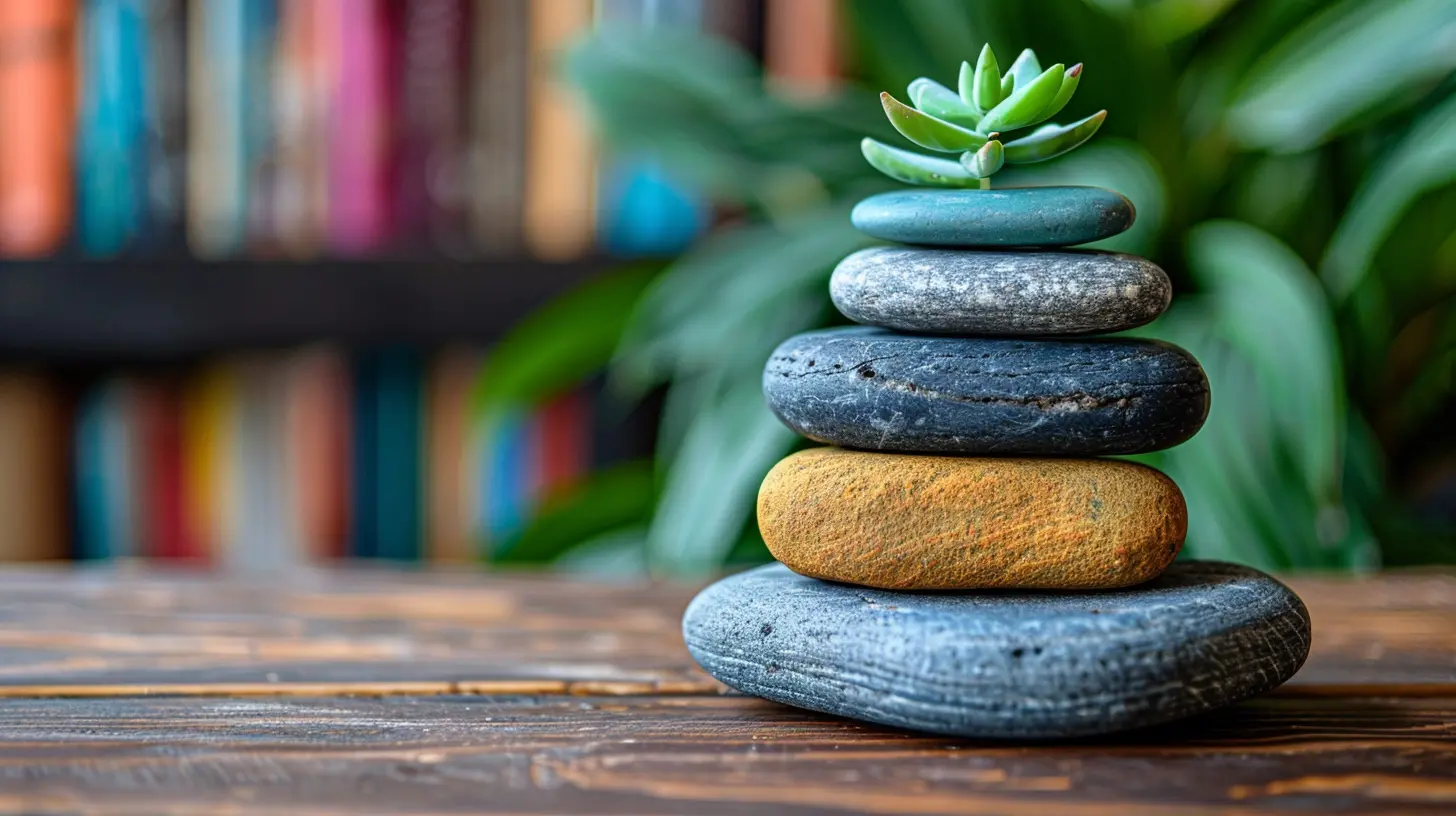Creating a Balanced Work-Life Routine as a Teacher
8 September 2025
Being a teacher is more than a job—it's a commitment, a passion, and sometimes, a never-ending to-do list. Between lesson planning, grading, meetings, and actually teaching, it can feel like there are just not enough hours in the day. And let’s not even mention the emails!
But here's the thing—you can’t pour from an empty cup. Maintaining a balanced work-life routine isn’t just a luxury; it’s essential for your well-being, productivity, and happiness. So, how do you juggle it all without losing your sanity? Let’s dive in! 
Why Work-Life Balance Matters for Teachers
Teaching isn’t your typical 9-to-5 job. It often extends beyond school hours, creeping into evenings and weekends. The problem? Burnout is real, and it’s happening way too often in the education sector.Maintaining a balance between work and personal life isn’t just about feeling better—it enhances your effectiveness as a teacher and helps you show up as the best version of yourself every day. When you're rested, happy, and energized, your students benefit too. 
Practical Tips for Balancing Work and Life

1. Set Clear Boundaries
Ever find yourself grading papers at midnight or answering emails on a Sunday morning? It’s time to set some boundaries.- Define your work hours: Decide when your school day starts and ends—and stick to it!
- Limit after-hours work: Avoid checking emails or bringing home unnecessary work unless it’s absolutely crucial.
- Communicate your boundaries: Let students, parents, and colleagues know when you’re available and when you’re off-duty.
Think of yourself like a store—when the "closed" sign is up, the shop stays shut. It's the same with your personal time.
2. Prioritize Tasks Effectively
The to-do list of a teacher never ends, but that doesn’t mean everything has to be done immediately.- Use time-blocking: Dedicate specific time slots for planning, grading, and meetings.
- Focus on what truly matters: Not every email needs an immediate response. Prioritize based on urgency and importance.
- Work smarter, not harder: Use technology, templates, and pre-made resources to cut down on unnecessary workload.
A well-organized teacher is a less stressed teacher.
3. Learn to Say No
As much as you want to be the superhero who does it all, you don’t have to.- Be selective with extra responsibilities: If your plate is already full, politely decline additional tasks.
- Avoid overcommitting: Saying "yes" to everything might make you feel helpful, but it also drains your time and energy.
- Practice assertiveness: It’s okay to say no without feeling guilty. Your well-being comes first.
Giving 100% to a few things is always better than giving 50% to everything.
4. Make Time for Yourself
Let’s be honest—when was the last time you did something just for you?- Schedule "me time" just like any other appointment. Whether it’s reading, exercising, or binge-watching your favorite show, it matters.
- Engage in hobbies: Pursue activities outside of teaching to recharge and bring joy into your life.
- Take mental health breaks: Stepping away, even for just a few minutes, can do wonders for clarity and focus.
Self-care isn’t selfish; it’s necessary.
5. Develop a Wind-Down Routine
If you find yourself bringing work stress home, having a wind-down routine can help switch gears.- Disconnect from work: Shut down your laptop, silence notifications, and physically step away.
- Create a relaxing evening ritual: Take a walk, listen to music, or enjoy a warm cup of tea.
- Get quality sleep: A good night’s rest makes a huge difference in how you handle stress the next day.
Think of it like shutting down a computer—your brain needs a reset too.
6. Foster a Strong Support System
You’re not in this alone. Surrounding yourself with a supportive network can make a world of difference.- Connect with fellow teachers: Share experiences, tips, and even frustrations—it’s therapeutic!
- Lean on friends and family: Let them be your sounding board when things get overwhelming.
- Seek professional support if needed: There’s no shame in talking to a counselor or mentor.
Remember, even superheroes have sidekicks.
7. Make Weekends (Mostly) Work-Free
Weekends should be for resting, recharging, and spending time with loved ones—not catching up on grading.- Plan ahead during the week: Avoid piling up work for the weekend.
- Dedicate one day completely to yourself: Whether it’s Saturday or Sunday, let at least one day be totally work-free.
- Use shortcuts and tools: Apps like Google Classroom, auto-grading tools, and pre-made lesson plans can save you loads of time.
Give yourself permission to enjoy your time off—guilt-free.
8. Stay Organized
A cluttered workspace often leads to a cluttered mind. Staying organized can save you time and reduce stress.- Keep a planner or digital calendar: Scheduling helps you stay on top of tasks without feeling overwhelmed.
- Declutter your workspace: A clean desk equals a clear mind.
- Use checklists and reminders: Nothing feels as satisfying as checking something off a to-do list.
Organization isn’t about perfection; it’s about efficiency.
9. Focus on Your Health
You can’t take care of others if you’re not taking care of yourself first.- Eat well: Fuel your body with nutritious meals instead of surviving on coffee and snacks.
- Stay active: Even a short walk can help boost energy and focus.
- Manage stress: Meditation, deep breathing, or even just a few moments of quiet can make a big difference.
Your well-being is just as important as your students' success.
10. Celebrate Small Wins
Teaching is tough, and sometimes it feels like progress is slow—but every little victory counts!- Acknowledge your efforts: Even if no one else says it, remind yourself: you’re doing a great job!
- Keep a gratitude journal: Jot down positive moments from each day.
- Celebrate student achievements too! Their growth is a reflection of your dedication.
Every step forward, no matter how small, is worth celebrating. 
Final Thoughts
Balancing work and personal life as a teacher isn’t about achieving perfection—it’s about making small, intentional choices that protect your well-being. Teaching is a rewarding career, but it doesn’t have to consume every moment of your life.By setting boundaries, prioritizing tasks, making time for yourself, and staying organized, you can create a fulfilling and sustainable routine. And remember—you deserve a life beyond the classroom, too.
So, take a deep breath, close that laptop, and go enjoy your well-earned time off. You’ve got this!
all images in this post were generated using AI tools
Category:
Teacher Burnout PreventionAuthor:

Bethany Hudson
Discussion
rate this article
1 comments
Easton Blevins
Striking a balance as a teacher is like juggling textbooks and coffee cups—challenging yet rewarding. Prioritize self-care, embrace flexible routines, and remember: a well-rested teacher inspires brighter minds. Make time for 'you' to teach your best!
September 25, 2025 at 5:02 AM

Bethany Hudson
Absolutely! Prioritizing self-care is essential for teachers to maintain their energy and passion. A balanced routine fosters both personal well-being and effective teaching. Thank you for highlighting this vital aspect!


